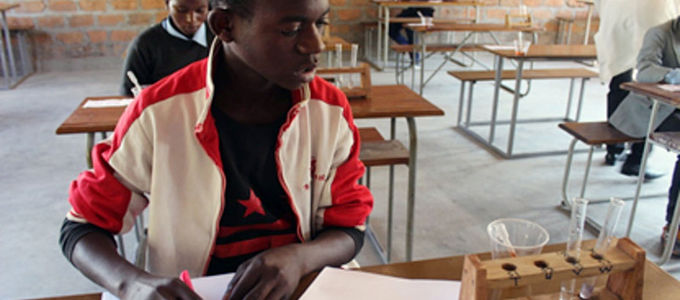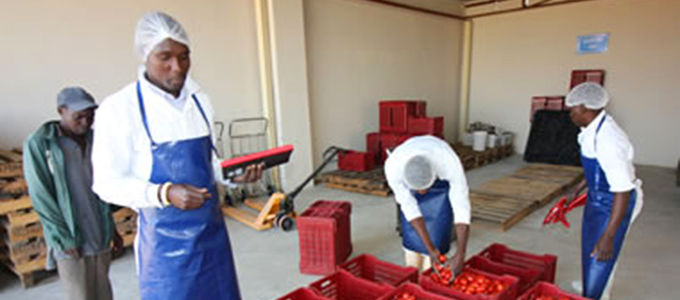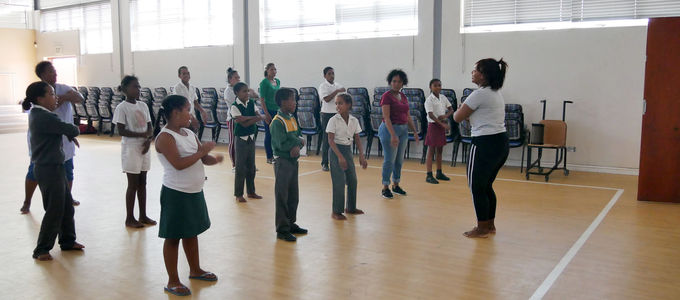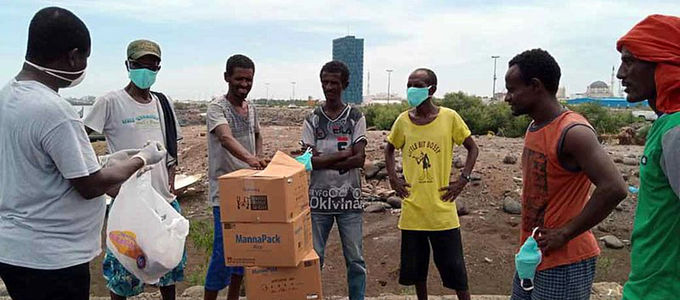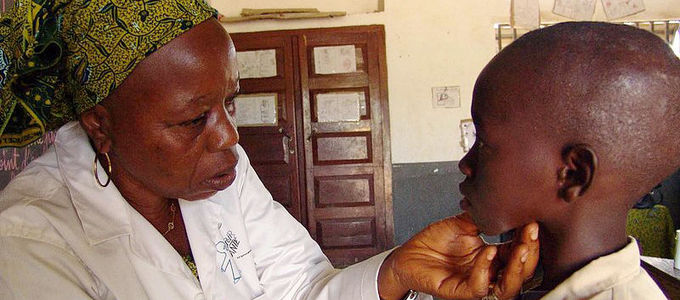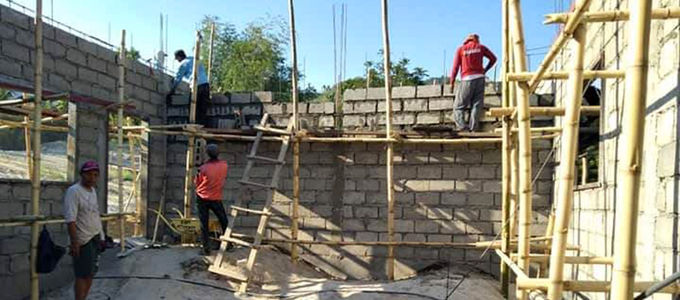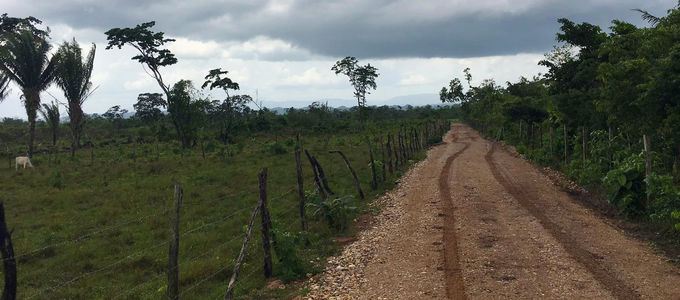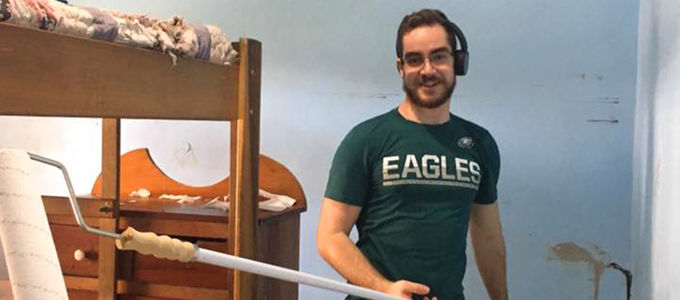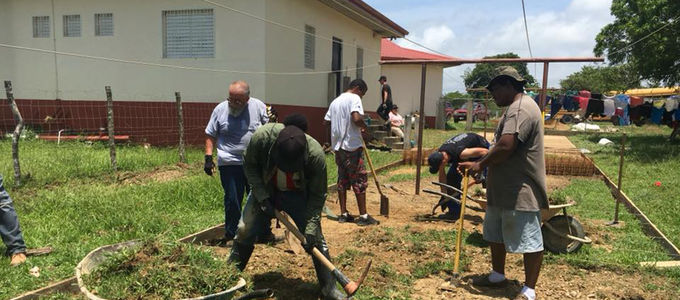Aid organisations amid the pandemic: miracles and innovations (Part 1)
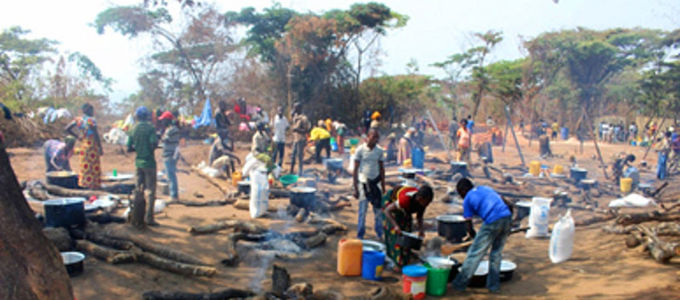
Aid organisations fight against need and suffering in the world. The coronavirus pandemic has made this battle significantly more difficult for them, however. Following are some insights into the lives of helpers who have learned to master entirely new challenges.
The coronavirus has changed everyday life, society, and people in general. While the restrictions may not be as significant in some places, there are other areas where they are quite drastic indeed. And even weeks after the start of the pandemic, it has not yet become possible for people in most countries to return to their old, familiar ways of life and work.
However, the pandemic has also changed the face of need and suffering in the world. The editors of nac.today inquired with some of the fourteen New Apostolic relief agencies to learn how they have been dealing with new restrictions in their already difficult working environment, and how they have been forced to break new ground in some areas.
Lockdown and travel restrictions
“How has the work of the project leaders and local assistants changed? And what strategies are the aid organisations developing in order to carry out their work despite these new obstacles?” In many cases local workers are confronted with some very basic restrictions: lockdown, the closing of public facilities, bans on assembly, and so on. If there is no response from the authorities, if the planning team can no longer meet, and if people in need can no longer be contacted, then projects that thrive on cooperation are at risk.
“We are currently still quite restricted in our freedom of travel and movement, and we cannot travel to our project areas as usual. This means that project monitoring and evaluation are only possible to a limited degree,” explains Nadine Beckmann of NAK-karitativ (Germany). “However, we have managed to stay in contact with many of our partners through video conferencing. Our five volunteers have likewise prepared themselves for their next posting to Zambia, Malawi, and South Africa by way of video conferencing.”
The implications of the new security measures were not quite as problematic for human aktiv. The aid agency cooperates with other institutions and supports them financially on many projects. “It was not possible to transfer official donations during the lockdown period,” says Susanne Raible of human aktiv. Thus the projects continue, but their coordination shifts to online formats.
Video conferencing is effective
In South Africa, the lockdown has led to large-scale changes. Jacqui Naidoo, an employee with Masakhe Foundation based in Cape Town, South Africa, explains: “Before the coronavirus, we were still able to maintain our regular programmes (Skills Unlimited, After School Safe Spaces, Addiction Awareness, and Uthandiwe Children’s Home) in remote regions. When the president of our country announced that we were going into lockdown, we immediately shut down all of our centres and suspended our training courses because we didn’t want our volunteers to be infected.” The aid agency then intensified its efforts in projects pertaining to energy and food aid.
The restrictions have also been clearly felt in Zambia, Malawi, and Zimbabwe: “The work environment and ways of engagement have drastically changed: as an NGO we believe in delivering services to mass populations—this cannot work any more. Work has become slow. Our training workshops, meetings, and all other gatherings now need limited numbers. This has affected our ability to reach our target numbers and meet the project milestones as planned. Also this means having more meetings and training which, in turn, surpasses the planned budgets,” says Tebuho Yubai, executive director of NACRO, the aid organisation headquartered in Lusaka in Zambia. New opportunities are also identified and used, however: “New methods of communication—such as video conferencing, for example—have also made working from a distance easier and more effective.” In fact, less time is wasted by using these platforms. Decisions are made quickly and are less costly in terms of travel logistics and meeting hours—on balance, Yubai is content.
Quarantine promotes resourcefulness
Always react to the developments with flexibility—that is at the very top of the agenda for these aid organisations. The team from NAC SEA Relief is currently looking back on 130 days of quarantine. Retired District Apostle Urs Hebeisen, president of the aid agency of the New Apostolic Church in South-East Asia, reports on one of the worst experiences, namely the uncertainty about what the future will bring. “Thankfully we have slowly begun to notice an easing of the situation, but the problem is far from over.”
Kim Kolb, who is responsible for the aid organisation re Charitable Ministry at the New Apostolic Church USA, describes similar procedures: “Within the USA, re Charitable Ministry continues to support local congregational initiatives (the re Charitable Ministry Grassroots Programme) through assistance with specific fundraising and logistical support. Some of the congregational food banks in various NAC USA churches were able to reopen within weeks after the original shut-down simply by modifying their procedures.” And a number of innovative ideas are also being put into practice: for example, within the framework of a regional food bank programme, the congregation of Sterling Heights organised a drive through in its church parking lot. “Our members had packed food supplies that were then brought safely to the cars of the beneficiaries. The line stretched all the way up to the street in front of our church.”
Aid agencies in need of donations
Long-term planning and project documentation, which is even recognised by external experts, has put the work of the aid agencies on a solid foundation. Regardless of these organisational basics, however, there is still a need for members to donate. The kind of willingness required can decrease in times of crisis, however, and the work of these aid organisations will either stand or fall as a result.
In spring 2020 there was a significant drop in donations at NAK-karitativ, “which naturally had an impact on the financing of our projects,” explains Beckmann. “In the meantime, however, we are very thankful to note that many donors have continued to support us despite the crisis.” Other agencies, in turn, are gratefully beginning to see that donation proceeds have increased noticeably. “Willingness to donate has increased considerably at human aktiv,” says Susanne Raible.
So far, no effects have been felt in terms of donor willingness in the USA. Kim Kolb is reluctant to even define any long-term effect due to the crisis at this point. She remains confident: “Over the last few weeks, we have seen many touching efforts on the part of our members to do their best and to share what they can.” In the South African aid agency known as Masakhe, the financial situation is a little more anxious. “Our regular donors supported us generously during the first two months of lockdown. Since then (due to the change/uncertainty in the circumstances of our donors), they have been donating much less, or do not donate at all.” And the question of new developments in donation levels has also caused uncertainty in Zambia: “The donors are not so sure what tomorrow will bring, and are thus holding on to their resources,” says Yubai of NACRO.
Crisis upon crisis
NAK-karitativ, the aid agency of New Apostolic Churches in Germany, is often asked how people are doing in the project countries themselves. Beckmann explains: “Many of the people there work as day labourers. As a result of the crisis, most of these jobs have been lost. This means no income, and therefore hunger!” In many countries there is no social network, which means people are forced to leave their homes despite the high risk of infection. Often, physical distancing rules are not even observed. “Here we cannot help think about the narrow spaces of the slums, for example in Mukuru in Kenya. For this reason, we support many countries by providing them with emergency aid packages that contain basic food and hygiene products such as soaps and disinfectants.”
And even in South Africa, there are many questions from donors that need to be answered. Jacqui Naidoo (Masakhe Foundation) reports: “Since we cannot continue our regular programmes, we provide food aid (food parcels, virtual food stamps, or soup and bread). Our donors keep asking us whether we can continue providing food aid during the lockdown, as there is a tremendous need in South Africa. And yes, the aid agency has indeed been able to maintain that kind of support,” confirms Naidoo.
Contact information, donation accounts, and other information on the activities of the aid agencies of the New Apostolic Church around the world can be found on their respective websites:
- human aktiv (Germany)
- Kumea (East Africa)
- Masakhe Foundation (South Africa)
- NAC Foreign Extension (Canada)
- NAC SEA Relief Fund (South-East Asia)
- NACare (Australia)
- NACRO (Zambia, Malawi, Zimbabwe)
- NAK-Diakonia (Austria)
- NAK-Diakonia (Switzerland)
- NAK-Humanitas (Switzerland)
- NAK-karitativ (Germany)
- re Charitable Ministry (USA)
- Ser Prójimo (Argentina)
- Stichting Corantijn (Netherlands)
In part 2, the aid organisations will report on local aid workers, new projects, and their personal joys and concerns in this work.







